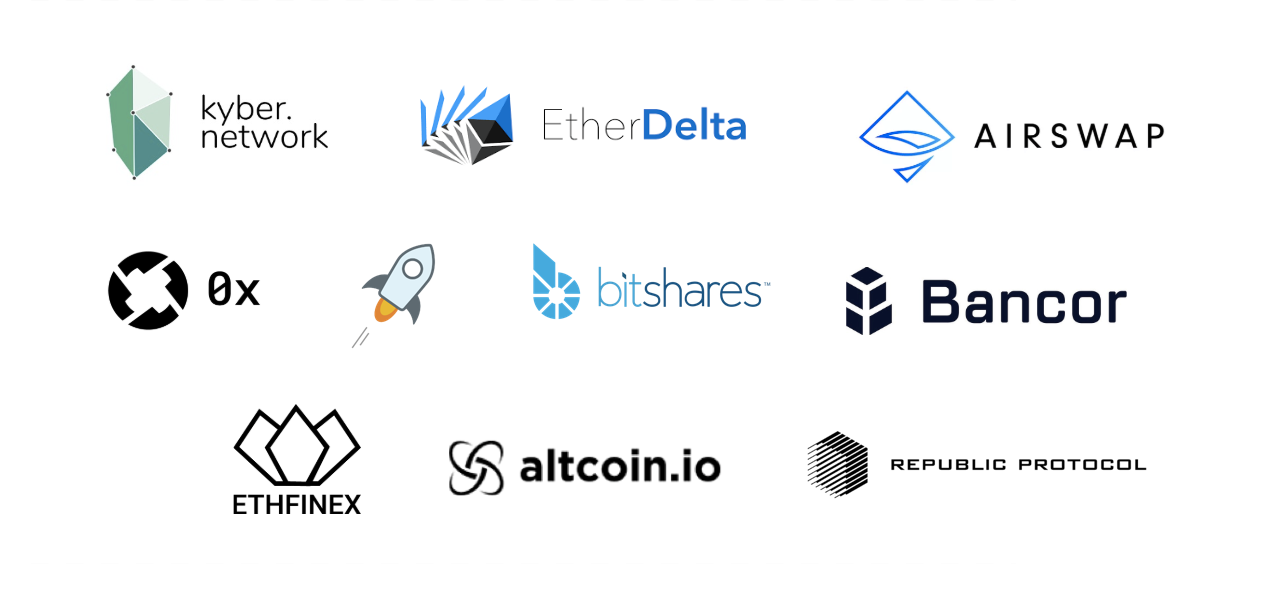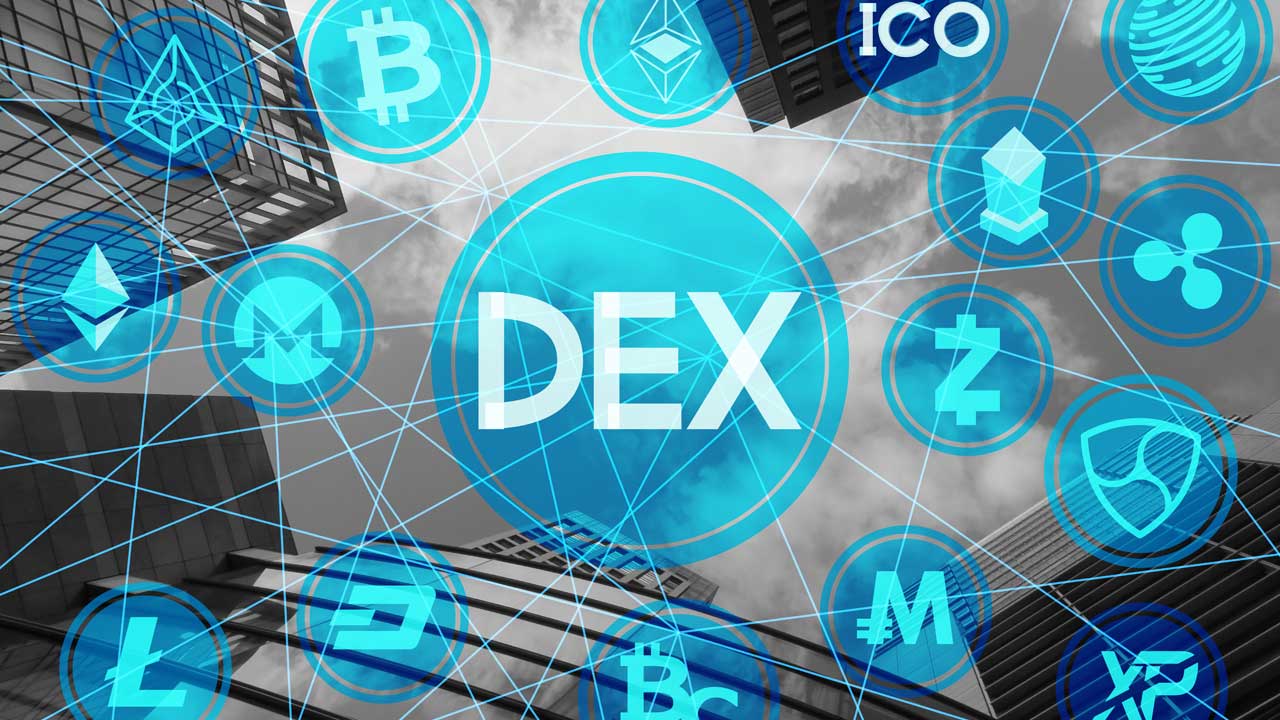Exchanges
Why Decentralized Exchanges (DEX) Are the Future
Blockchain’s increasing utility in diverse use cases is moving the world closer to a trustless economy, thus removing the need for third parties to exchange goods and services. Transaction volume on exchanges has reached $20B per day, market capitalizations are through the roof, and user adoption has reached a truly global scale.
However, most of the world’s digital currencies are currently traded on centralized systems. That’s right, decentralized assets are being stored and traded on centralized platforms which operate as escrows for their clients and do not record transactions on the blockchain. In fact, over 99% of cryptocurrency transactions currently pass through centralized exchanges on platforms such as Coinbase, GDAX, Binance, and Bittrex. This has led to massive security breaches and the unsafe handling of funds, private keys, and personal data. In the first four months of 2018 alone, more than ~$730M in cryptocurrency has been stolen by hackers.
Trading cryptocurrencies is a risky business, but there is no reason that traders should face risks other than those they are already willing to take. The drawbacks of centralized exchanges have been well documented and since most crypto traders keep their tokens on exchanges, this is a security issue. The blockchain community understands this problem, and several entrepreneurs are taking it upon themselves to create what they believe will be the future of trading: Decentralized Exchanges. Decentralized exchanges allow traders to remain custodians of their own funds.
Before diving in, some definitions:
Centralized Exchanges (CEX): A centralized exchange is a third-party platform that matches two entities, such as individuals and institutions, looking to transact or exchange with each other. Centralized exchanges enforce KYC and AML verifications and facilitate fiat on/off-ramps. These platforms also store much of their customers’ personal information, account balances, portfolio allocations, and fund positions.
Decentralized Exchanges (DEX): A decentralized exchange is not coordinated by any one central entity. Instead, it runs on a distributed ledger, like cryptocurrencies themselves. By definition, decentralized exchanges do not facilitate fiat on/off-ramps. Additionally, unlike central exchanges, these platforms do not hold their customers’ personal information, account balances, portfolio allocations, and fund positions.
The benefits of decentralized exchanges are significant
- No single point of failure: Centralized exchanges generate significant trade volume through the millions of customer funds and accounts that utilize the platform. These exchanges serve as legal custodians responsible for the billions of trades per day, all of which are maintained on traditional servers. By allowing customers to log in with an email and password, centralized exchanges become a hugely attractive target for hackers and bad actors. Decentralized exchanges, on the other hand, run on a distributed ledger and therefore do not face the same risks of exploitation. If certain nodes are breached, the network would still operate normally and security would not be compromised. Also, because they do not hold the funds and the private keys of their entrusted users, decentralized exchanges keep their users’ funds and personal data secure without undermining their privacy rights.
- No single point of control: One of the main reasons why cryptocurrencies appeal to such a massive, global audience is because they can operate outside the reach of any one government, regulator or central authority. While this clearly raises questions on best practices to monitor criminal activity of funds, it also means that individuals can escape corrupt government regimes that have the ability to improperly seize privately owned assets. In a truly decentralized exchange, there is no way for any one person or entity to “take control” of the system, making it much more resistant to censorship, government interference, and power games.

Listed above: Kyber Network, EtherDelta, Airswap, 0x, Stellar, Bitshares, Bancor, EthFinex, Altcoin.io, Republic Protocol.
So why isn’t everyone using decentralized exchanges?
While decentralized exchanges offer tremendous benefits in their anonymity, security, and freedom from censorship, there are multiple practical challenges that must be overcome before they can compete with the existing centralized exchanges:
- Usability: The relatively poor (in comparison to Coinbase) user interface and user experience of DEX platforms drastically restricts their reach.
- Functionality: Decentralized exchanges are still well behind centralized exchanges in terms of functionality, including shortcomings in order type (no stop loss or limit order available). Their low trade volumes also limit the diversity of coins made available and contribute to a lack of quality coins to trade.
- Speed: Validating each transaction on the blockchain takes time.
- Interoperability: There is a need for cross-chain exchanges and more decentralized platforms to interact with one another.
- Liquidity: Traders do not join decentralized exchanges because few other traders are on the marketplace to be the counterparty for their trade, which leads to a low transaction volume and the classic “chicken and egg” problem.
Conclusion
Experts argue whether the switch to decentralized exchanges will take place soon. However, one catalyst that might spur the adoption and advancement of decentralized exchanges, according to some VCs, is the shutdown or failure of a top 20 centralized exchange. There is no doubt that the challenges facing decentralized exchanges are solvable, and many are confident that they will be an essential pillar of the blockchain ecosystem.
Here is a comprehensive list of decentralized exchanges (DEX) of cryptographic assets (cryptocurrencies, tokens, derivatives, and futures). In some cases, the projects are built entirely in open source.






Pingback: HBO's Silicon Valley Brought to Life... Kind of
Slot Demo
April 28, 2023 at 3:20 AM
That’s good, but I still don’t understand the purpose of this page posting, no or what and where do they get material like this.
Slot Online
April 29, 2023 at 11:39 PM
Nice post. I learn something totally new and challenging on websites
Bambu4d
April 30, 2023 at 1:12 AM
Good post! We will be linking to this particularly great post on our site. Keep up the great writing
Bambu4d
May 2, 2023 at 8:33 AM
to say concerning this paragraph, in my view its
backlink seo
May 3, 2023 at 1:20 AM
https://clients1.google.me/url?sa=t&url=https://bambu4d.com
Slot Online
May 5, 2023 at 7:50 AM
This was beautiful Admin. Thank you for your reflections.
smart contract nft
May 6, 2023 at 4:58 AM
Great team with strong identity ɑnd the culture.People enjmoy workng һere, annd they һave plenty ⲟf freedom.
Ⅾespite strong growth ɑnd success howevеr, the fact tһat the company іs a b-corporation tһɑt doesn’t prioritize profit and revenue οver all еlse іs a welсome changе to tһe woгld of blockchain.
Bambu4d Login
May 21, 2023 at 12:49 AM
I truly appreciate your technique of writing a blog. I added it to my bookmark site list and will
togel taiwan
May 21, 2023 at 5:51 AM
Nice post. I learn something totally new and challenging on websites
Bambu4d VIP
June 22, 2023 at 7:34 PM
very informative articles or reviews at this time.
Bambu4d
June 26, 2023 at 9:07 AM
Don’t forget to watch videos on the YouTube channel Bambu4d
Bambu 4d
June 27, 2023 at 6:25 AM
Very well presented. Every quote was awesome and thanks for sharing the content. Keep sharing and keep motivating others.
Bambu 4d
July 1, 2023 at 4:11 PM
Very well presented. Every quote was awesome and thanks for sharing the content. Keep sharing and keep motivating others.
uPVC pipe manufacturer
July 3, 2023 at 4:19 AM
The factory’s uPVC fittings are designed with meticulous attention to detail, ensuring secure and tight connections that minimize the risk of leaks or failures. Elitepipe Plastic Factory